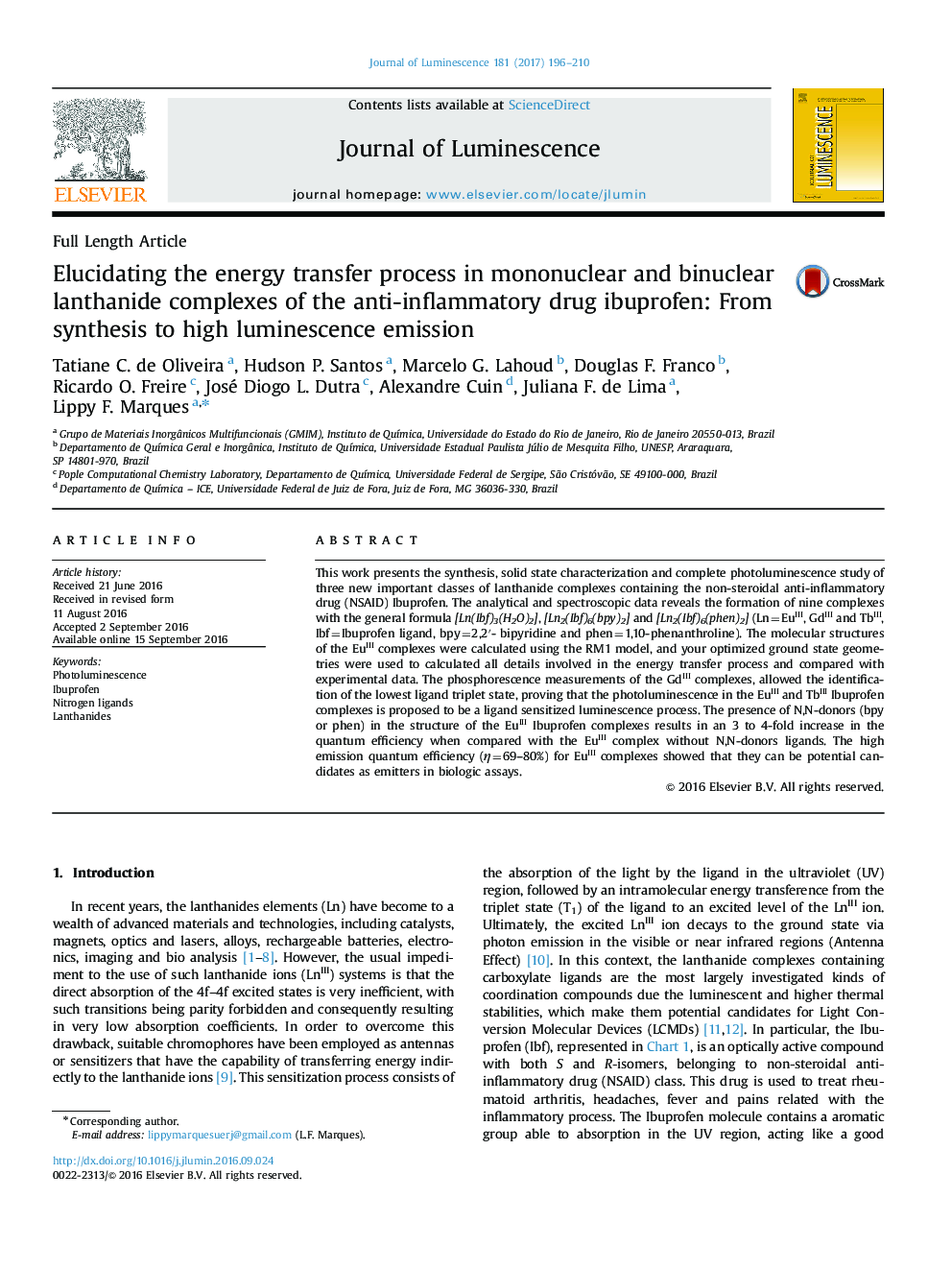| Article ID | Journal | Published Year | Pages | File Type |
|---|---|---|---|---|
| 5398031 | Journal of Luminescence | 2017 | 15 Pages |
Abstract
This work presents the synthesis, solid state characterization and complete photoluminescence study of three new important classes of lanthanide complexes containing the non-steroidal anti-inflammatory drug (NSAID) Ibuprofen. The analytical and spectroscopic data reveals the formation of nine complexes with the general formula [Ln(Ibf)3(H2O)2], [Ln2(Ibf)6(bpy)2] and [Ln2(Ibf)6(phen)2] (Ln=EuIII, GdIII and TbIII, Ibf=Ibuprofen ligand, bpy=2,2â²- bipyridine and phen=1,10-phenanthroline). The molecular structures of the EuIII complexes were calculated using the RM1 model, and your optimized ground state geometries were used to calculated all details involved in the energy transfer process and compared with experimental data. The phosphorescence measurements of the GdIII complexes, allowed the identification of the lowest ligand triplet state, proving that the photoluminescence in the EuIII and TbIII Ibuprofen complexes is proposed to be a ligand sensitized luminescence process. The presence of N,N-donors (bpy or phen) in the structure of the EuIII Ibuprofen complexes results in an 3 to 4-fold increase in the quantum efficiency when compared with the EuIII complex without N,N-donors ligands. The high emission quantum efficiency (η=69-80%) for EuIII complexes showed that they can be potential candidates as emitters in biologic assays.
Related Topics
Physical Sciences and Engineering
Chemistry
Physical and Theoretical Chemistry
Authors
Tatiane C. de Oliveira, Hudson P. Santos, Marcelo G. Lahoud, Douglas F. Franco, Ricardo O. Freire, José Diogo L. Dutra, Alexandre Cuin, Juliana F. de Lima, Lippy F. Marques,
